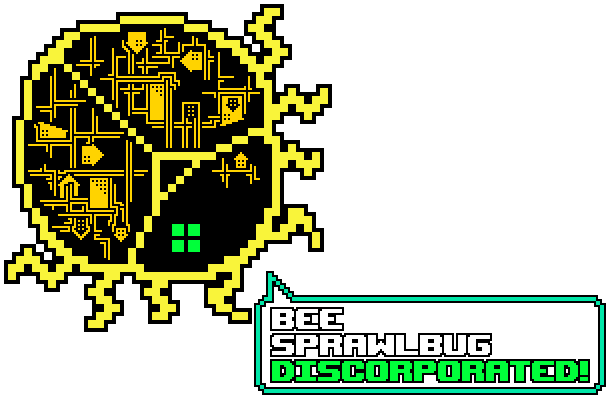The philosopher Slavoj Zizek is distressingly fond of a rhetorical trick we’ll call Confirmation By Negation. The idea is that by searching carefully through seemingly contradictory notions we arrive at some fundamental truth. You tell me you want to drink this latte, but what if the opposite were true!? You may want to hold the latte, to sip from the latte, but never would you want to finish it! Never would you desire to grow fat from its milk and sugar, or to suffer the negative effects of its caffeine! In this notion of the dairy-free, sugar-free, caffeine-free latte we discover the truest ideals of postmodernity! And so on.
So it is with many of today’s open world videogames. They seek to let you do anything, which of course means there is nothing to do! Their attempts to regulate your rise to power flatten them to an exercise in exchanging meaningless junk for the means to accrue more meaningless junk, and their deluge of tiny consequences for all your tiny actions of course renders them consequence-free. Their unique storyworlds—immersion in which is supposed to be the entire point of playing—somehow become completely external to them, since of course every ‘open world’ from Middle Earth to Mad Max manages to be exactly the same. You say you want an open world, but my god, don’t you actually want the opposite!?
We can view these games as a sequence of empty gestures designed to mediate our experience of the dreadful Other who lurks on the opposite side of their ending cinematics. We climb many instances of essentially the same tower to reveal wide swathes of essentially the same territory, in which we perform essentially the same regimen of busywork. We do this so that many instances of the same Orwellian super-presence will pass ‘control’ over this territory from itself unto us. In Assassin’s Creed we transact with the evil and mysterious Templars; in Batman it’s the evil and mysterious Arkham Knight. In The Elder Scrolls: Oblivion, perhaps most tellingly of all, we transact with hell itself. The game opens scores of its Oblivion Gates—all of which are essentially the same Oblivion Gate—and invites us to close them one at a time. By investing many hours of our labour, we sew shut the bursting seams of eternity! What better way to relieve ourselves of boredom?
What is boredom, if not fear of our inevitable death?
Within each of these games we pilot the same walking contradiction: something that is at once us, and not us. Where our real world body cannot have very much of what it wants, our open world body can have everything that is available, which of course is many instances of the same thing. But you see, it is also more! Confirmation By Negation tells us that ‘possession’ is predicated both on what we have and what we can’t have. When there is nothing in the universe we can’t have, the idea of ‘possession’ does not meaningfully exist; there is, in fact, nothing to possess. Thus when Fable II’s Orwellian super-presence permits us to transact from it marriage with every character in the world (each of whom is essentially the same character and thus a non-character), we discover little point in marrying anyone in particular. We discover the very essence of the open world system: a machine permitting us to learn, by manipulating it, precisely how and why manipulating it can have no effect.
The ‘open world’ is a mirror through which we can view, indirectly, the abject emptiness lying beyond our realm of experience. Within its reams upon reams of collectible things, we recognize and find comfort in the absence of any particular thing; we enact the ritual of collecting junk until there is no more junk to collect, at which time we discover triumphantly that we have succeeded in gathering the pure, distilled essence of nothing. We hold it in our hands, we add it to our gamer score, then we reach for a second world that is in truth another instance of the first. Here is Zizek’s dairy-free, sugar-free, caffeine-free, never-ending latte! Drink as long as you please, for your stomach can never fill.

Pingback: This Week in Video Game Criticism: From Mario Maker to Sunless Seagamedev.fm | gamedev.fm
I actually like open worlds for the freedom to explore and dream. A video game can be like a book, you can use your imagination to fill those empty gaps. I am constantly amazed by some of the breath taking landscapes I am coming across in dragon age inquisition. The busy tasks are merely a side effect of the world I am exploring, while I relax and don’t think about the real world busy tasks I must par take in.
This article sounds more like self reflection through a video game as a medium. I think you are looking inside yourself and seeing emptiness. If you are unable to enjoy video games, it is time to put them down, and fill that void.
Video games are simply a tool, not a means to the end. The enjoyment comes from with in you. You need to do some self searching friend beyond the game.
Your comment sounds like disguised apologia about a popular videogame. I think you are looking at someone else and seeing emptiness to dissuade criticism about open-world videogames.
Pingback: Android Assault: The Revenge of Bari-Arm | Something in the Direction of Exhibition
Pingback: Shadow of the Colossus | Something in the Direction of Exhibition
Pingback: Asmik-Kun Land | Something in the Direction of Exhibition
Pingback: The Abject Emptiness of ‘Exchange’ | Brendan Vance